The Funeral Did Not End by Sylva Nze Ifedigbo (Book Excerpt)
It nauseates me that she is standing at my door so early this morning. I should have known that those two quick knocks were hers. Those two quick taps that formerly got me springing to the door with a smile dancing on my lips. Today, unfortunately, such enthusiasm has known death. I shouldn’t have opened the door to find her standing there and telling me we need to talk -- with eyes darting up and down the corridor like a burglar breaking into a room and watching to see if any eye is watching. She looks dressed for work, her perfume uninvitingly fills up my lungs. I look at her and wonder if I should just slam my door on her face or flatten her chubby nose with a punch. I can feel the urge in the muscles of my right arm. I am sure I wouldn’t regret either.
“Can I come in please?” she says, sniffing like she has a cold, urgency echoing in her every word. I notice she must have been crying so much so that the white of her eyes are pinkish, and there are bags under her eyes. I am not moved. It nauseates me even more, but my right arm doesn’t complete the movement. My lips part instead.
“To do what?” I ask. She lowers her gaze to the foot mat in front of my door before throwing her neck to the right and to the left to survey the corridor. I watch her breasts rise and fall as she breathes in heaves. I think she is ashamed and I think she really should be. What was she thinking? That I would give her a hug and throw my door wide open at her sight?
“Haven’t you already done enough damage? What more do you want here?” I ask.
“Please Vin. We need to talk. I am very sorry. Can you let me in…please?” she shakes her head as she speaks as though saying no to a question. Her voice is as sweet as can be. That sonorous voice that always lit a fire inside me. Today, however, there is a coating of sorrow around it. It is supposed to evoke pity. But I do not care. I am not moved. I simply do not want to see her. Not just yet. I think again about slamming the door on her face.
“I have nothing to discuss with you. Go away. Just go. Leave me alone for God’s sake.” I wish she could see the bile in me and just turn around and leave, knowing that I needed to be alone. But she refuses to. She stands there in my doorway, sniffing and making my stomach rumble in anger.
“We need to talk about the pills, Vin. I can explain. I...” She seems to decide against her next line. She sniffs again and squeezes her palms together like one would on a chilly morning. She is trying to steady her nerves. I look at those slim long fingers as they fold and stretch out. It is the same way they move each time she is about to pick up the scalpel to perform a surgery. I try not to, but my thoughts drift to that first day.
Going to Med school was father’s idea. A doctor son was all he needed to be guaranteed his respect among his peers. He is going to be a doctor, I remember him volunteering on my behalf each time someone asked me what I wanted to be in future. Initially it seemed hip. The thought of walking around in a white coat with a stethoscope hanging down my neck appealed to my infant mind. But deep within as I grew older, I knew I wasn’t for medicine. I cringed at the sight of blood. I hated tablets and I dreaded needles.
Indeed, I had no business in the science classes in the first place. I was in love with books. Father had a four row wooden shelf full of books. Most of them had the orange cover of the African Writers Series. The stories fascinated me, and all I could imagine was me, my face on the back cover of one of those books, my name boldly imprinted on them as the author.
So I stole into Literature classes and scored higher than those in the Arts. When I aired the idea of wanting to be a writer, Father looked at me like I had just farted in his presence. It was the sort of look that preceded the stretching of his hand to deliver a slap. I knew that look. It was on one of our visiting days and he had come alone bringing jollofrice, chin-chin and coke. I had just finished putting back the food warmer in the knap sack, and was standing before him, waiting for him to dip his hand into his pocket and replenish my pocket money, when courage simmered through my veins and I began:
“Daddy, I wrote the best essay in my English class. My teacher said she would be sending my piece for the National Essay Competition.” I delivered my well rehearsed preamble –my voice sounding like a song to my ears. But to my ears alone. He didn’t look up from the week’s copy of The Guardian which he was reading. He only made a sound in his throat and flipped to a new page.
Undeterred I continued going on and on about how the principal had called me out in front of the assembly to congratulate me, how my teacher presented me a copy of Adichie’s Purple Hibiscus, how I was now the star of the Literary and Drama society. All the while he was just nodding and flipping to new pages like a house wife being bored-stiff with stories of politicians from her husband, when all she wanted was for him to come to bed. It was when I mentioned that I now wanted to be a writer that he slowly lowered the magazine and gave me that look.
Instinctively, I took a step back, farther from the reach of his hand in case the slap that I knew accompanied that look was to come. I shouldn’t have bothered or perhaps it was because of my being already beyond his reach that made him decide against welding me a slap. He pointed his right index finger just above his right ear, and asked if something was wrong with my head.
As far as he was concerned, no right thinking person will want to study a course that will leave him broke most of the time. Certainly not his son, his only son and heir.
“Study medicine! That’s the course for people with your brains. You can be sure of a job immediately you graduate.” he said. I never mentioned wanting to be a writer to him ever again.
In med school, I got the nickname Ghost from my classmates for my disappearing acts. I was seen more with the Arts students. They constituted the bulk of my friends. I found our arguments on real life issues more appealing than the drab talk of muscles and bones. I joined them for the weekly dramas, and I once got unto the set of a play, though it was a minor backstage role.
I rose through the ranks to become the editor of the campus magazine. I was the first non-journalism student to do so in the fifty-year history of the school, blazing a new editorial ideology that made us -- my crew and I -- constant guests at the security office. But for my being a medical student -- an adored group of students -- I would have earned myself a rustication.
As graduation neared, what I looked forward to wasn’t the relief of graduation, the comfort of a well paying job or the change that the prefix ‘Dr’ would do to my personal profile. I looked forward, instead, to having the opportunity of my own Call Room experience so that I could write about it.
Long before I went to med school, I had seen a movie on M-net, a Hollywood bestseller. The main characters, a team of brilliant surgeons who seemed so sold to their career of saving lives, used the Call Room in between series of surgeries to remind themselves that it was blood they had running in their veins.
There were Call Rooms in the Teaching Hospital in school but, as students, they were not available to us for such luxury. Our senior colleagues had it to themselves. We the students had to seek out other venues to connect with life, to ease ourselves of the gory images we were exposed to daily in the Teaching Hospital.
“Clear up, Doctor Vincent, I am done here.” Dr Sarafa said taking off the bloody gloves. The surgery had lasted two hours and she was visibly tired. 1.00am was an odd time to have called a woman out of bed. I felt sorry. I could understand why she was in a hurry to leave.
“No problem, Doctor.” I replied, handing over a kidney dish with blood-stained artery forceps to one of the nurses, and wondering if there was anything else I should say, like a word of commendation for the miracle she just performed.
“The Call Room,” she said just as she got to the door to the theater. “It does have a bed, right?”
“Yes,” I replied, and then added “A bunk actually, the six-spring kind.”
“Whatever,” It came out as woreva. “I need to stretch out a bit. Could you join me there when you are done here?”
I could count three blunders I had committed through the night. First, in my panic, I had not administered the necessary palliative treatment to the baby before calling her. She had been mad when she rushed in with a lab coat over her pajamas to find out I hadn’t done so. Secondly, I had wrongly gripped an artery during the surgery which had led to a panic moment. There hadn’t been time to scold me so that when she asked that I joined her in the Call Room, I was sure to receive enough bashing and, perhaps, a review of my knowledge in Pediatric Surgery. It was the normal drill.
It was now three months into my one year housemanship programme and I was yet to have any special Call Room experience. Well, not in the way I had fantasized about it just before leaving school. My female colleagues seemed of the crudest form of med school species. Very socially inept. They only talk about how thrilling it was to have been asked to scrub in for surgery by their consultants. The nurses -- the few that were still young and shapely -- treated us young doctors with the gravest form of disdain like our very presence took some life out of them. Our interactions end with our issuing instructions to them about the treatment regimen of a patient. No social talks. Are they all lesbians? I once wondered, always hurdled up in their Nurses Station giggling excitedly to themselves, while the Call Room begged for action.
The only other females aside patients in the hospital were the cleaners, women now haggard from the long years of scrubbing the floor. Not me! I rather spent many lonely nights on call roving from one news channel to the other on DSTV, and counting the minutes left till dawn.
That week, I was on pediatrics posting. One long week of tending fragile innocent infants, the most boring of all postings. Earlier in the day, a week old baby had been admitted for a suspected case of Tetralogy of the Fallot. It was a congenital malformation of the heart walls that allowed mixing of oxygenated and deoxygenated blood pumped by the heart. The surgery to correct it had been put off till the next day when the father might have paid every penny. I was listening to the new guy in the White House, Obama, addressing the G-20 summit in London in the Call Room that night when my attention was called. The baby’s condition had taken a turn for the worse.
For the first time I saw why infants with this condition were often referred to as ‘blue babies’, the baby’s skin was now discernibly blue. I was shaken and so was the mother who was sobbing by the bedside. All around me were nurses, their eyes boring through me and seeming to ask in unison, How do we precede, Doctor? But I honestly didn’t know. Panic-stricken, I called the consultant pediatric surgeon. It was 1.00am.
I walked into the Call Room face down. She had just her pajamas on now, having discarded the lab coat. The top two buttons of her pajamas were was loose. My eyes caught sight of more flesh than I should. Were the buttons left open in error or by intention? I stood at the door, like a pupil in the head masters office, waiting to be flogged.
“That was a risk you took there.” she said in a soft voice, her left hand straightening out the strands of her hair.
“I am sorry, Doc,” there was fog in my throat. I wished I could make the moment disappear.
“Was that your first TOF experience?”
“Yes, Doctor.”
There was a pause.She made her face as if considering if I was lying or telling the truth.
“You did quite well.” she finally said.
I couldn’t believe it. Did she just commend me? I wondered.
“Calling me up early enough saved the baby.”
I felt a bit relaxed. I even tried a smile before putting in the words of commendation I really should have said back in the theatre. “You were awesome there, ma.”
She smiled “Not too many first timers see it through their first TOF experience. Handling a baby’s heart isn’t usually a mean affair.”
It was really an awesome experience handling a heart in my palms, the little mass of flesh throbbing slowly, sending life with each beat all over one’s being.
“I am privileged to have scrubbed in with you, Doc.”
We were silent for some time. She looked away from me to the dress cabinet at the right end of the room, where we kept our change over cloths. My eyes went down to my wrist watch, following the movement of the seconds hand, and mentally synchronizing it with the beat in the left of my chest.
“Ever thought of taking up pediatrics?”
The question sent shivers down my spine. I looked up from my wrist and our eyes met. The truth was that I had no plans of practicing medicine. I didn’t fancy sitting back daily to listen to people tell me about their problems. I certainly couldn’t stand walking out to tell desperate relatives that we did all we could. I had just completed my application to study medical public health at UCL. I had concluded that I could as well practice my journalism in Medicine.
“Come…come and sit here,” she said tapping the space on the mattress beside her and raising some particles that danced upward in the white florescent light of the room. She must have noticed the riot in my brain.
I walked over hesitantly. She is my consultant surgeon. It was 3.00am or there about and this was the proverbial Call Room.
Call Room is an excerpt from The Funeral Did Not End by Sylva Nze Ifedigbo.
(Dada Books, Aug, 2011)
Copyright © Sylva Nze Ifedigbo 2011.
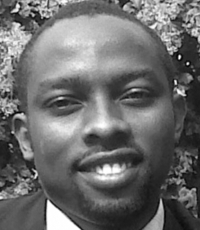 Sylva Nze Ifedigbo was born in Abuja, Nigeria in 1984. He attended the School for the Gifted Abuja and the University of Nigeria, Nsukka where he studied Veterinary Medicine. An award winning writer, his works of fiction and socio-political essays, have appeared in many journals and he is widely published online. His novella Whispering Aloudwas published in 2007. Nze as he prefers to be called contributes to NEXT, Daily Times and Nigeria Dialogue and spends his spare time blogging at Nzesylva's Weblog.
Sylva Nze Ifedigbo was born in Abuja, Nigeria in 1984. He attended the School for the Gifted Abuja and the University of Nigeria, Nsukka where he studied Veterinary Medicine. An award winning writer, his works of fiction and socio-political essays, have appeared in many journals and he is widely published online. His novella Whispering Aloudwas published in 2007. Nze as he prefers to be called contributes to NEXT, Daily Times and Nigeria Dialogue and spends his spare time blogging at Nzesylva's Weblog.


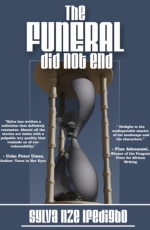
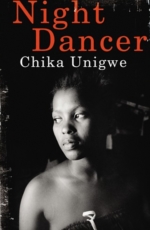

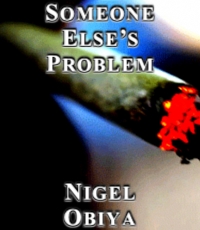

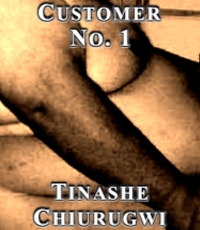
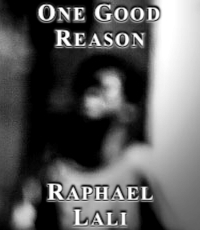





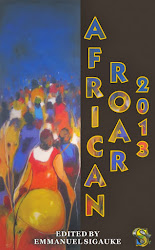


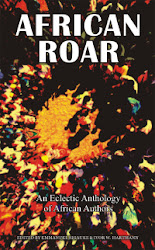

3 comments:
great! looking forward to having the collection in paperback, just can't wait, well done, Sylva!
Nze,
I'm waiting for the book. Why are my senses driving me towards the fact that this is like an autobiograph?
Interesting story. Best wishes with your new book.
Post a Comment